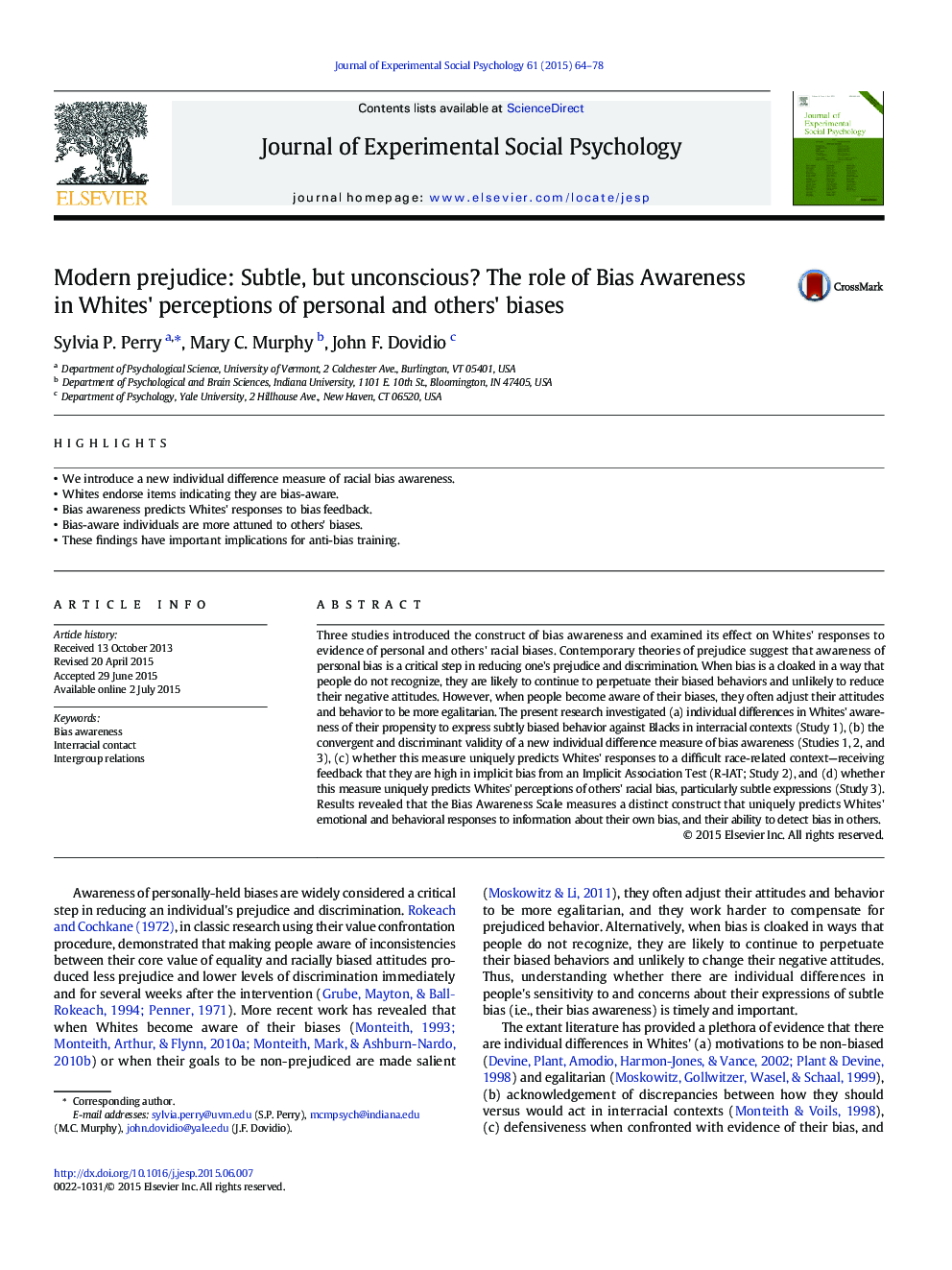| Article ID | Journal | Published Year | Pages | File Type |
|---|---|---|---|---|
| 7324450 | Journal of Experimental Social Psychology | 2015 | 15 Pages |
Abstract
Three studies introduced the construct of bias awareness and examined its effect on Whites' responses to evidence of personal and others' racial biases. Contemporary theories of prejudice suggest that awareness of personal bias is a critical step in reducing one's prejudice and discrimination. When bias is a cloaked in a way that people do not recognize, they are likely to continue to perpetuate their biased behaviors and unlikely to reduce their negative attitudes. However, when people become aware of their biases, they often adjust their attitudes and behavior to be more egalitarian. The present research investigated (a) individual differences in Whites' awareness of their propensity to express subtly biased behavior against Blacks in interracial contexts (Study 1), (b) the convergent and discriminant validity of a new individual difference measure of bias awareness (Studies 1, 2, and 3), (c) whether this measure uniquely predicts Whites' responses to a difficult race-related context-receiving feedback that they are high in implicit bias from an Implicit Association Test (R-IAT; Study 2), and (d) whether this measure uniquely predicts Whites' perceptions of others' racial bias, particularly subtle expressions (Study 3). Results revealed that the Bias Awareness Scale measures a distinct construct that uniquely predicts Whites' emotional and behavioral responses to information about their own bias, and their ability to detect bias in others.
Keywords
Related Topics
Life Sciences
Neuroscience
Behavioral Neuroscience
Authors
Sylvia P. Perry, Mary C. Murphy, John F. Dovidio,
